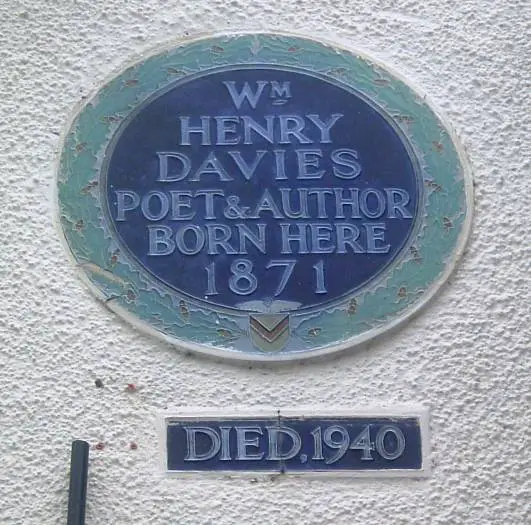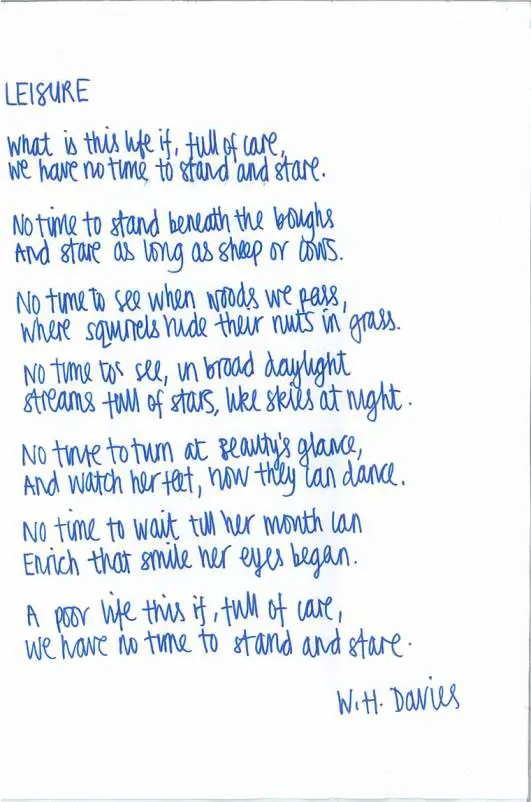The Rain is a poem by the Welsh poet, W. H. Davies, who was born in 1871.

In order to give a critical summary of the poem, though, it would probably help others to be able to see it in its entirety first:
The Rain
I hear leaves drinking rain:
I hear rich leaves on top
Giving the poor beneath
Drop after drop;
'Tis a sweet noise to hear
These green leaves drinking near.
And when the Sun comes out,
After this rain shall stop,
A wondrous light will fill
Each dark, round drop;
I hope the Sun shines bright;
'Twill be a lovely sight.
(William Henry Davies)
This poem, although short, conveys a serious message, and highlights the differences between rich and poor.
The first stanza (or verse) describes the beauty of watching and listening to the rain fall onto leaves, first onto the leaves at the top, and eventually making their way down to the lower leaves.
The leaves at the top of the plant - which first benefit from the life-giving, thirst-quenching water - represent the rich in society, whereas the lower leaves - which have to wait for the droplets to fall from the upper leaves - represent the poor.
The second stanza shows how, after the rain, the sun comes out again, cutting through the darkness and bringing light - thus making everything more beautiful.
This gives the poet hope for society, showing that it could become different and more beautiful, if everyone had what they needed to survive, as well as sharing the beauty of what nature has to offer.
W.H. Davies' biographer described him as, "A Welshman, a poet of distinction, and a man in whose work much of the peculiarly Welsh attitude to life is expressed with singular grace and sincerity."
This "peculiarly Welsh attitude" is something I fully understand, as a fellow Welsh person, though it is difficult to describe to others.
The attitude is shared by other Welsh poets such as R. S. Thomas, however, and can probably be summed up by the following attributes, some of which you might be tempted to think were contradictory:
- A love of beauty and nature, and the power of language
- A starkly realistic understanding of society and its ills
- A deeply emotional and yet dignified and accepting way of dealing with difficulties
- An awareness of the musicality inherent in language
The poem, The Rain, was actually set to music, as you can hear below:
William Henry Davies is probably best-known for another poem, called Leisure, which is often quoted, in everything from films to television advertisements:

As an added bonus, here's a rare recording of the poet himself, talking about his attitude to his life and work, as well as reading the poem aloud.